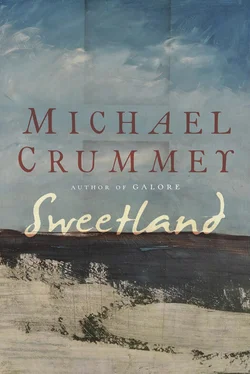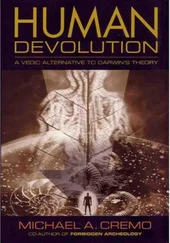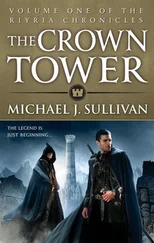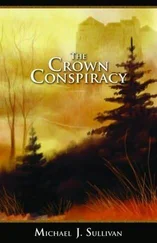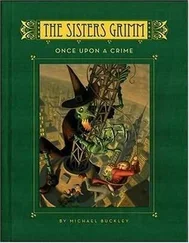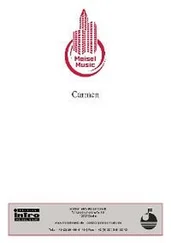I wants it nice and tight at the back and sides, he said.
Sweetland’s face seemed to surface out of a filmy mist as he watched the hair fall away in clumps. The lank earlobes looking almost scrotal, the still-black eyebrows thick as gorse. The skin grafts on the right side of his face, even after all these years, shockingly rabid.
You coming down to the wharf tomorrow? Duke asked.
Going in to pick a few berries first thing.
Awful early for blueberries.
Been a good summer, Sweetland said. Half of them’s already ripe. They’ll go to rot on the bush someone don’t pick them soon.
Duke stepped back when he was done and the two men stared into the mirror.
You’re a natural, Sweetland told him.
Fuck you, Duke said quietly.
After he ate breakfast, Sweetland took his canvas backpack down to Duke’s shop. A CLOSED sign in the tiny window but the door was unlocked. Duke had left behind the barber’s chair and the mirror and the chessboard on its low table. His photos and newspaper clippings taped to the wall, the space above the chessboard almost completely covered.
You don’t want to take any of these with you? Sweetland had asked him.
Duke shook his head. That’s all is holding up that wall, he said, is Scotch tape.
There was a section of articles about the Sri Lankan boat people in their red lifeboat, most from the St. John’s paper, though there were five or six from the mainland. Black-and-white pictures of the cove. One or two insets of himself with captions. Local fisherman, Moses Swietlund. Newfoundland fisherman rescues Sri Lankan boat people . There was an article up there about him receiving the Coast Guard medal out at the keeper’s house, a year after the event. A couple of Polaroids of him with Bob-Sam Lavallee and two officers in their white tunics, of him wearing his medal beside Pilgrim and Ruthie and the baby.
Clara was almost three months old by then and Sweetland doted on her, feeding the girl her bottle and changing her shitty diapers and walking the floor, humming little songs to quiet her when she fussed. Holding her by the ankles and blowing farts on her belly to make her laugh. He could see how much Clara meant to Ruthie, that the wonder of the child was almost enough to redeem the road she’d travelled to have her. And Clara was Sweetland’s way back into Ruthie’s life, a place they could safely set their wounded affection for one another. They never mentioned the night at the church with the dead boy under his altar cloth. It was a sunker awash at low tide, and they rowed a wide berth around it.
Sweetland glanced down at Duke’s chessboard. The black and white pieces in their neat opposing rows, but for the one white pawn that Duke had placed ahead two spaces before he left the room for the last time. His habitual opening. For a moment Sweetland considered taking the board back to the house with him. But he was miles away yet from playing a chess match against himself. He reached down, lifted a black pawn up two spaces to meet its opposite.
“Your move,” he said.
He went to the cupboard below the mirror, taking the straight razors and the cup and three bars of shaving soap. He unscrewed the razor strop on the side of the barber’s chair, and he set all the materials into his pack.
From there he went down to the Fisherman’s Hall to pick through Reet Verge’s museum. He had to force a window at the back of the building to get inside. Mostly junk she’d collected, old stovetop irons and one of Uncle Clar’s handmade highboys, a white nightdress that belonged to Sara Loveless’s grandmother. Net-knitting needles, cod jiggers, a killick. An antique phonograph with a horn-of-plenty amplifier that belonged to old Mr. Vatcher, a slender stack of 78s beside it. Something by Don Messer. Two survivors of an eight-record set of The Messiah . Sweetland wound the mechanism and released the stop, the table creaking into motion. He placed the needle on the spinning record, the sound of static giving way to “Turkey in the Straw.” Pilgrim’s standby on his toy fiddle. The machine pumped out an astonishing level of noise and Sweetland lifted the needle halfway through. Stood listening to the quiet, like someone afraid he’d woken a sleeper in another room. Let the turntable slow to a stop on its own.
He came away from the museum with a storm lamp, with the scythe and sharpening stone he’d donated out of his shed, and three kerosene lamps to light the kitchen and his bedroom. But there was nothing else of any use to him.
He scoured the cove looking for a boat. He went through sheds and fishing rooms, amazed to think every punt and skiff and motorboat had gone with the last residents. He lay awake half a night, trying to think how he might get on the water, when Loveless’s dory came to mind.
In the morning he walked to Loveless’s barn and hauled the derelict craft into the open air. It was made of rough board and weighed about as much as a small car. The bastard child of a night of tormenting they’d rained on Loveless — Sweetland and Duke and Pilgrim and the Priddles. Useless, they called him. Kerosene Head. Didn’t know his ass from a hammer. Too fucken lazy to shiver.
Loveless was suffering through one of his intermittent infatuations at the time. They were all one-sided and hopeless, though none more so than this latest fixation. He got his hair trimmed every Monday morning in Reet’s kitchen. Invited himself by to watch Land and Sea or reruns of The Love Boat in the evenings. He made a goddamn nuisance of himself, keeping tabs on her whereabouts every minute of the day, wanting to know who she spoke with on the phone. Followed her around like a lamb after its mother.
It was a joke in the cove, Loveless in love, and abusing the man was their favourite drunken entertainment. Loverless, they called him. Couldn’t nail a woman with her legs tied open. Reet Verge wouldn’t let a man like him lick her shoes, they said.
The accusations stung Loveless into an uncharacteristic spell of industry. He squirrelled himself away in the barn for months, hauling lumber from Vatcher’s store, boxes of nails and paint and more besides. He refused to say what he was up to back there until he asked Sweetland to bring his quad and trailer to the barn.
Well Christ, Sweetland said when he saw it. Did Sara help you with this?
Not a nail, Loveless said defiantly.
Well Christ, Sweetland said again.
It was meant to be a tribute to Reet, he realized, a declaration to the world, a kind of courting. It looked more or less the way a boat ought to look, which Sweetland counted a major accomplishment. But he doubted the thing would float. They muscled it onto the trailer and brought it down to the harbour where Sweetland backed it out on the slipway. Loveless sitting up on the thwart to row her maiden voyage across the cove.
How does she feel? Sweetland asked as the dory drifted free.
Finest kind, Loveless shouted back, an edge of panic in his voice.
Even from the shoreline Sweetland could see that every seam was seeping water. What did you caulk her with? he asked.
Loveless was trying to turn her head back to the slipway before she went under altogether. Paint, he shouted.
They managed to make it seaworthy enough that youngsters could beat around the harbour in her, but it was never fit for anything more than that. The Love Boat, Sweetland called it. It hadn’t been near water in a decade when he dragged it outside. Daylight showing through half the seams. He walked slowly around the vessel, like a man stalking an injured creature, looking for the quickest way to kill it.
He tied the dory onto his ATV trailer and rode it to the government dock where he backed it down the slipway until it was sunk to the gunwales, seawater pouring in through the cracks. He left it there on the trailer for two days and nights to let the old boards plim up. On the third morning he turned it face down on the wharf and set about raking out the seams. He found a ball of caulking cotton tucked away with Uncle Clar’s old tools in the shed, the strands on the outside as dry and hard as wood, but he pried away until he reached a layer still waxy enough to be pliable. He chinked it in with a maul and chisel, then puttied the seams tight. He had half a tin of yellow oil paint he’d used on the outhouse before it was relegated to wood storage, and he slapped a layer on the dory’s upturned hull.
Читать дальше
